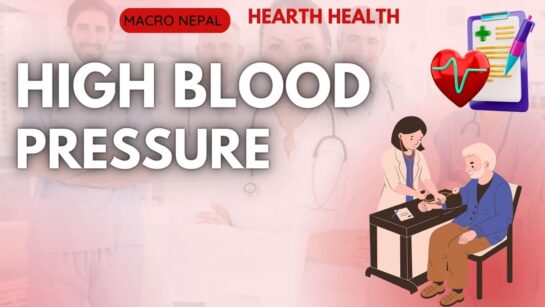High blood pressure, also known as hypertension, is a prevalent condition that affects millions of people worldwide. It occurs when the force of blood against the walls of your arteries is consistently too high, which can lead to serious health issues such as heart disease, stroke, and kidney failure. Understanding the causes, risks, and management strategies for high blood pressure is crucial for maintaining good health.

Table of Contents
ToggleWhat Causes High Blood Pressure?
Several factors can contribute to high blood pressure, including:
- Genetics: Family history plays a significant role in determining your risk.
- Age: The risk of hypertension increases as you age.
- Diet: High intake of salt, fat, and cholesterol can raise blood pressure.
- Physical Inactivity: Lack of regular exercise can lead to weight gain and increased blood pressure.
- Obesity: Being overweight increases the workload on your heart, raising blood pressure.
- Alcohol and Tobacco Use: Both can damage the heart and blood vessels, leading to hypertension.
- Stress: Chronic stress can contribute to long-term high blood pressure.
Risks Associated with High Blood Pressure
Uncontrolled high blood pressure can lead to numerous health complications, including:
- Heart Disease: High blood pressure can cause coronary artery disease, heart failure, and an enlarged heart.
- Stroke: Hypertension can lead to the rupture of blood vessels in the brain, causing a stroke.
- Kidney Damage: High blood pressure can damage the blood vessels in the kidneys, leading to kidney failure.
- Vision Loss: Hypertension can damage the blood vessels in the eyes, causing vision problems.
- Sexual Dysfunction: High blood pressure can affect blood flow, leading to sexual dysfunction in both men and women.
How to Manage High Blood Pressure
Managing high blood pressure involves a combination of lifestyle changes, dietary adjustments, and medication when necessary. Here are some effective strategies:
Lifestyle Changes
- Maintain a Healthy Weight: Losing weight can significantly lower your blood pressure. Aim for a healthy BMI and waist circumference.
- Exercise Regularly: Engage in at least 150 minutes of moderate-intensity aerobic exercise each week. Activities like walking, jogging, cycling, and swimming are beneficial.
- Quit Smoking: Smoking raises blood pressure and damages blood vessels. Quitting smoking improves heart health and lowers blood pressure.
- Limit Alcohol Intake: Reduce alcohol consumption to no more than two drinks per day for men and one drink per day for women.
Dietary Adjustments
- Follow the DASH Diet: The Dietary Approaches to Stop Hypertension (DASH) diet emphasizes fruits, vegetables, whole grains, and low-fat dairy products while reducing saturated fats and cholesterol.
- Reduce Sodium Intake: Aim to consume less than 2,300 milligrams of sodium per day, ideally reducing it to 1,500 milligrams. Avoid processed foods and opt for fresh ingredients.
- Increase Potassium Intake: Foods rich in potassium, such as bananas, oranges, and potatoes, can help lower blood pressure.
Stress Management
- Practice Relaxation Techniques: Incorporate activities such as deep breathing, meditation, and yoga into your routine to manage stress.
- Get Adequate Sleep: Aim for 7-8 hours of sleep per night to help regulate blood pressure.
- Stay Socially Active: Engage with friends and family to reduce stress and improve overall well-being.
Medication
In some cases, lifestyle changes alone may not be sufficient to control high blood pressure. Your doctor may prescribe medication to help manage your condition. It is important to take the prescribed medication as directed and to have regular check-ups with your healthcare provider.
Conclusion
High blood pressure is a serious condition that requires attention and management. By making informed lifestyle and dietary choices, practicing stress management techniques, and following your doctor’s advice, you can effectively control your blood pressure and reduce the risk of associated health complications. Regular monitoring and proactive measures are key to maintaining a healthy heart and overall well-being.

